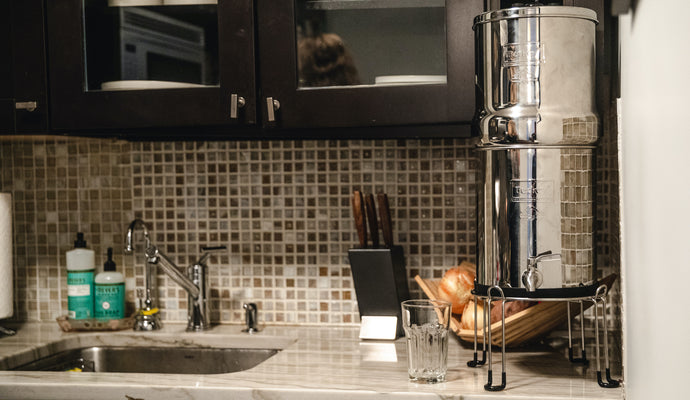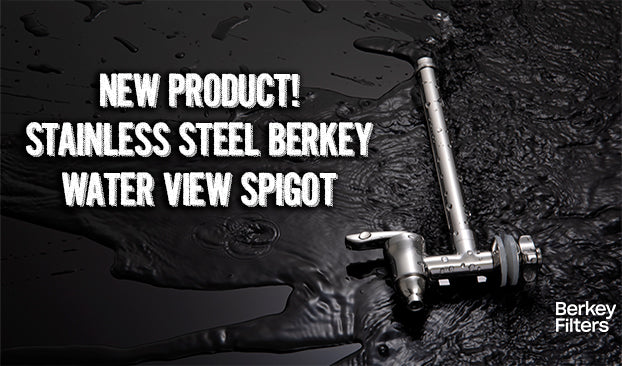
Which is better; A countertop water filter such as a Big Berkey or a whole-house system, such as RO?
There are several things to consider when deciding what type of filter and which system is best. The spectrum of options is almost infinite, factors ranging from price, effectiveness, size, and maintenance. When explicitly comparing a Berkey water filter system to a whole-house water filter system, such as reverse osmosis, these are the aspects that set them distinctly apart.
Price:
Berkey water filters are in the $305-$504 range. The cost depends on the size, accessories added, and if there's a sale or discount. Because the chambers and filters last for such a long time, the cost per gallon comes out to be two cents per gallon.
Whole house filtration systems range from $300 to $3,000! (Some estimates go as high as $18,000!) Not to mention the cost on top of that for labor to install the system.
Size:
One is a countertop water filter; the other is a whole-house filter, which requires plumbing. The most widely sold system, a Big Berkey, is 21 inches tall by eight and a half inches wide. Berkey Water Filter Systems sit on the counter or any other flat, stable surface in the home. It's also a sleek, stainless steel design that cohesively fits with stainless steel kitchen appliances.
A whole-house system attaches to the house's current water lines. Contingent upon the type of whole-house system, the configuration can be 46x69 inches. Ample space is needed for the tanks, pipes, and access to the waterline to change the filters. The design is not the most eye-appealing, so ideally, space also needs to be out-of-sight. Does your house have room for this?
Effectiveness:
Point of Entry (POE), another name for whole-house water filter systems, is very good at removing Total Dissolved Sediments. However, they also remove all of the beneficial minerals. A whole-house system is excellent in that it covers your entire house. Good, clean water is coming out of all your faucets, which means you're washing your hands and taking a shower in filtered water too. If you or a family member has sensitive skin, this may be the better option.
Although, Berkey does offer shower filters to reduce chlorine inhalation and exposure. The water from Berkey is crisp and delicious. It has the minerals that naturally occur and are beneficial, arguably critical, to body functions. Magnesium and calcium are just two examples of the good minerals remaining in your Berkey drinking water. It's also portable.
Read more about Berkey versus Reverse Osmosis.
Installation:
All Berkey systems require zero tools. Everything is hand-tightened. Setting up a brand new Berkey takes about 20 minutes. The parts that need assembly are minimal, and there are various ways to prime the filters, so you'll be able to choose whichever option is best for you.
Whole house systems, on the other hand, are a significant endeavor. Unless you're exceptionally proficient at DIY, you'll need to hire a professional to install it, adding to your overall cost. At a minimum, plumbers tape, tubes, clamps, mounting screws, and associated tools are all needed for installation.
Maintenance:
Berkeys do require a little more care and maintenance. The upper chamber needs to be refilled every one to three days (depending on water consumption) and cleaned every three to six months and tested every six months to a year. Although that adds to the chore list, the overall system lasts for years. Some customers have even had their Berkey for decades.
With a reverse osmosis system, there can be multiple filters that need to be changed at all different times. For example, the sediment filter needs to be changed every six to twelve months for one system. The carbon filter needs to be changed every six to twelve months. The reverse osmosis membrane needs to be changed every two years, and the polishing filter needs to be changed every six to twelve months. These changes or replacements may need a water treatment professional to perform the job.










